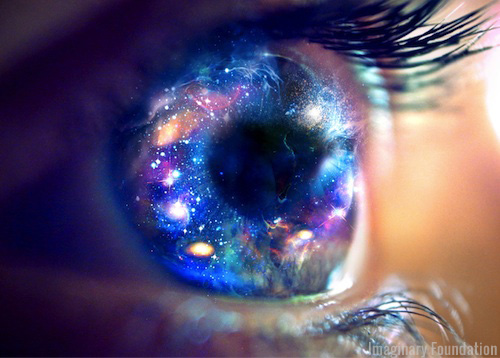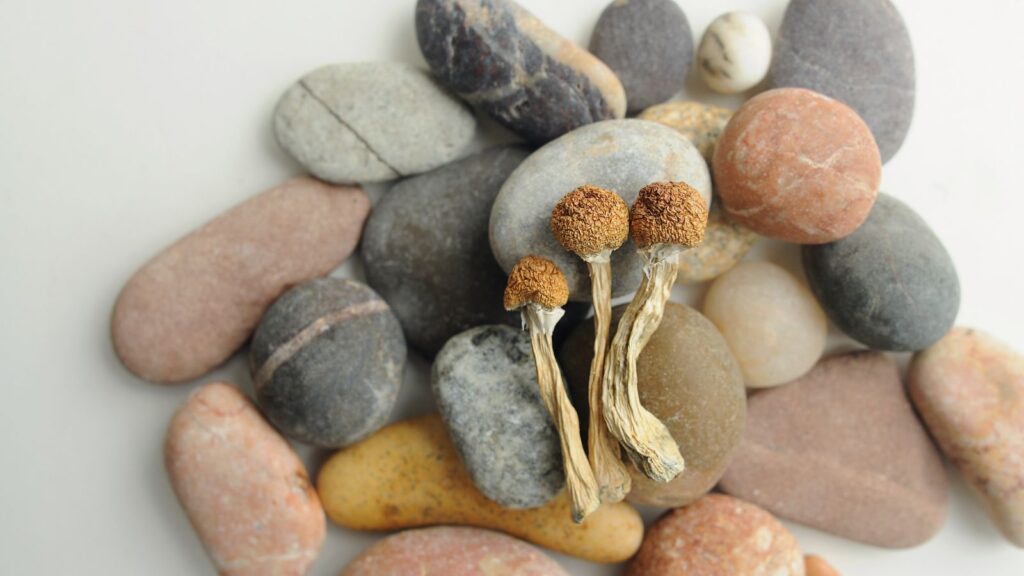It is an exciting time for research in psychedelic medicine. Stiff regulations that mired approval for clinical trials throughout the 70’s and 80’s were overcome in the early 90’s, and since then, decades of work from organizations such as the Multidisciplinary Association for Psychedelic Studies (MAPS), the Heffter Research Institute, and the Beckley Foundation garnering financial support for research funding are advancing the development of psilocybin and MDMA into medicines. Academic programs now support graduate level work for PhD students in psychedelic research programs, and legally approved psychedelic therapy training programs are bringing a new generation of experts in among the ever-expanding professional network of scientists and providers. A number of conferences centered exclusively on psychedelic research are occurring annually, such as the Horizons Perspectives on Psychedelics in New York City over Columbus Day Weekend, and MAPS sponsored events in California. Headline grabbing news articles abound whenever a new study is published, and in these early trials the data has, in some cases, been very deserving of high praise, both for the level of rigour in the methodology, and the striking results that go above and beyond the standard of treatment set by traditional therapies. While it may be tempting for enthusiasts to boast full-fledged support to the potential future developments for psychedelics as medicines, those who propose caution at this slowly maturing area of healing and inner exploration do so with careful and sincere inquiry.
“I have probably a slightly less than optimistic viewpoint now than I did a couple years ago,” says Katherine MacLean, clinical psychologist and former researcher with the Johns Hopkins psilocybin project. “A few years ago I was still very much excited and committed to being one of the mainstream researchers. What I’m seeing is kind of two things, one that I’m still optimistic about, and the other which kind of makes me a little bit concerned.” Katherine was a key figure in the studies investigating psilocybin’s healing potential for those facing anxiety with end-of-life medical diagnoses. Becoming somewhat disillusioned by what she was seeing in the academic world – and that her first child was about to be born – she left the university in exchange for a quiet life on her family’s farm in rural Connecticut. While taking a break from active involvement in the field, she remains fearless in her outspokenness and does not shy away from sharing her opinions in an interview.
Katherine: The optimistic piece is that a lot of money and attention is going toward direct medicinal applications for psychedelics for people who are actually acutely suffering, whether that’s cancer patients, or people with PTSD, or people with major depression. I would be really excited to see a lot of the research and funding go toward getting at least one of the psychedelic medicines approved to be used as an actual medicine for a particular population. I think once we have that, a lot of the other things that we see as potentially impactful on society will follow. It will be a watershed moment to have one of these schedule I drugs rescheduled.
What I’m less excited about is what I call ‘pet projects’ that are popping up, where some of the researchers are just pursuing the thing that’s most interesting to them. Given that we don’t have a psychedelic medicine that’s legal yet for people to use, I think it’s too early to be spending limited funding and time on these ‘pet projects’. That was what turned me off from some of the research. While interesting, I didn’t feel they were directly aimed at reducing human suffering. In medical research, I think it should be our highest aim.
RS: What are these pet projects that you’re talking about?
At Hopkins, I helped develop and design a study of the effects of psilocybin in long-term meditators. I felt that that population was not the population clamoring for help, and that study will probably cost close to a million dollars to run. If we had unlimited funding and scientific research from the government and private sources, then sure, run a study with long-term meditators for a million bucks. That’s one example. I may turn out to be completely wrong. Maybe it’s studies like that that get the public really excited. It could feedback in that way.
The group in London is pursuing the approach of doing a lot of basic science: healthy volunteers with psilocbyin and LSD in neuroimaging experiments. But having interacted with that team and knowing that they’re about to do a depression trial, it’s interesting to me that the basic science studies have taken off and are completed far faster than the depression trial could get started. It seems that some of these research projects that are more about personal interest and testing theories get accomplished faster than the ones that can actually help people. and I’m not sure why that is. I see both threads going on in research now. At least with MAPS and Rick Doblin they’re very focused, and I like that they’ve set this goal of MDMA as a prescription medication for PTSD. It’s very specific and it’s guiding all of their funding decisions. It doesn’t mean that they don’t do some other types of research, but for the most part, I think that that approach is what’s needed now. It’s lacking in some of the other research labs.
Some people would accuse Rick Doblin of focusing on MDMA as being a pet project.
When I started off as a scientist, I didn’t understand the values that were driving my decisions. Over the course of sitting in a lot of psilocybin sessions, and seeing how dramatically people’s lives could change, and how much suffering could be reduced, even in people who were pretty healthy, I realized that my values shifted. It also could just be that, in my framework, Rick’s ‘pet project’ aligns with my values. Other scientists may have a different value set that they’re using. I’m not sure that Robin (Carhart-Harris) over in London cares as much whether psychedelics can reduce suffering. I think he’s really interested in probing brain mechanism and advancing the science — that’s just a different set of values. Unfortunately, right now everything comes down to money. If there was unlimited funding, it wouldn’t be an issue with me. I’ve seen quite a lot of funding funneled toward things whose benefit I’m unsure of. It is a value judgement. I haven’t worked with MAPS, I haven’t done any of their clinical trials, but my impression is that the focus of the sessions is therapeutic and not as much about data collection. What I’ve seen at Hopkins and maybe the London group, too, is that the focus ends up being more on data collection and having the right things to say afterward about what happened, and not necessarily on maximizing the therapeutic outcome. That’s a balancing act for scientists. You have the potential to heal one person who’s in front of you, but you also want to collect as much data as you can to help more people down the line.
Would you say that you have a greater appreciation for the work than a doctor doing drug development research for a big pharmaceutical company?
Absolutely. I felt it was pretty clear within the first couple of volunteers that it’s absolutely impossible to remain objective when you’re in the room with someone on a high dose psychedelic. I think what happens is this really cool mutual growth opportunity where everyone who’s in the room benefits from having that one person go through the experience. I’ve found that I learned at least as much as the volunteers in terms of wisdom, or about the human condition, what’s the best way to live. I learned as much from the volunteers as they probably learned from their own participation or taking psilocybin. I think that the best guides who are doing this work now, and the best researchers, know that it’s this mutually dependent relationship. As for the issue on data collection, the sessions were mostly therapeutic, and we didnt bug people at all during the drug effect. All of the data collection happened before and after. The study that I was first involved in was with people starting a meditation practice for the first time. Many of them were basically healthy, but were struggling with a lot of the types of anxieties and existential concerns that we all have. I found myself making more and more decisions that were in favor of what the person needed rather than what the data required. At some point I told the Principal Investiagtor, ‘I don’t know that I’m a very good objective scientist anymore. I care too much about these people and I’m not going to let this opportunity pass by.’
For example, a 70-year old woman who had never taken a drug before, was a long-term meditator, and she was probably never going to get another opportunity to experience a high-dose psilocybin session like that. Once it became clear that she was having difficulty answering questions and providing data during the session – which she also admitted – we just set that aside and I let her have her experience, and it was fantastic. I realized that if I were focused on trying to be a good objective scientist, It would’ve been difficult to say, ‘Ok we’re just going to put the data aside for now.’ Yet at least for me witnessing this one day opportunity for this person collecting the data almost becomes irrelevant.
Was there anything else that led you to leave Hopkins?
I had a long-time meditation practice that was pretty normal until it wasn’t, and I went through a classic ego death experience that I think some people experience with a high-dose psychedelic. But it happened out of the blue and it was really disorienting. It put some things in perspective, and the game of showing up to a job and doing certain things because you’re required to seemed a little silly. But I didn’t know what else to do. I was still really good at my job, and I loved the fact that I get to interact with volunteers. So I kept doing it for a while, but then my younger sister had a recurrence of breast cancer. She was only 29, and she died very quickly — it was only about a month. I was with her during that time, and I realized how easy it was for me to completely forget about everyhting that I thought was important at my job and just be with her in the hospital. Everything that I had learned about psychedelics was true in the hospital. I had this moment where I felt that this is all I want to do, just be with people while they’re dying. Whether that’s physcially dying, or dying in the ‘ego-death’ sense, this is all I want to spend my time doing. At Hopkins, I’d get to spend less than half my time doing that and the rest of the time doing paperwork – grantwriting, research articles – and having meetings. I really want to spend my time with the direct one-on-one experience, and it’s not possible in that kind of institution.
Do you see the kind of work you’re describing as benefitting from being fully ingrained in a traditional medical model? One potential criticism I’ve heard is that it would restrict access.
The efforts are aimed at getting a drug that is going be available in a particular environment and is prescribed by a particular set of certified doctors, and in my experience, that’s not really how people want to take psychedelics. Especially people who are really ill, they don’t want to have to travel and go to an institution. People who are dying don’t want to die in institutions, they want to die at home. It may be true that if MDMA or psilocybin became legal to prescribe then that may mean defining the limitations for people who will have access to these medicines.
I don’t think it’s a secret that a lot of the people who are driving forces behind psychedelic research, and funding psilocybin and MDMA studies personally enjoy psychedelics. No one will really talk about it except for Rick Doblin, but they all want the freedom to take psychedelics. And yet, when it comes to patients and the kind of studies that they run, there seems to be this attitude that people really can’t be trusted to do this on their own. In his book Being Mortal, Atul Gawande writes, “What we wish for ourselves is autonomy, and what we wish for those we love is safety.” I think that’s true in the psychedelic world. There’s this paternalistic thing happening where the people who are in charge of the research and the funding want everyone else taking psychedelics to be safe. They feel that they are the only ones that can be trusted, that they know the best methods of conducting a session, the best form for the medicine. They don’t want people to listen to underground providers, or the shamans, and say that regular people can never take this at home with their family. On the one hand maybe they’re right, there’s a safe way to do it. But on the other hand, if it were them, they would want all of the freedoms that they want to take away from other people. It would be silly if after all of this, we end up with a medicine that no one can take because they dont want go to the place where they have to take it.
Should the goal then be a regulated, legal approach not completely confined to mainstream medicine?
What I would consider to be an ideal way for people to take psychedelics looks like families supporting individuals in places where they feel the most comfortable — whether that is a home, or a home-like environment, like a clinic –and guides who aren’t necessarily doctors, or who don’t necessarily have particular types of training, who’ve done apprenticeships to learn how best to sit with people who are taking these medicines. It seems very simple in my mind. But we run into all these issues with the legal structure where there’s really no precedent for allowing people to do this in their own private special way, which I think is unfortunate. It’s possible, but we have to start thinking about it now rather than once we’re further down the line and all of a sudden we’re at this dead end where the only way to take one of these drugs is in a really restricted way.
What does a good outcome look like from your perspective?
In a lot of situations, I found myself actually encouraging people away from psychedelics as the answer to their problems. I’m not as convinced as Rick Doblin is that MDMA or psilocybin are actually going to save most people’s lives. I think it’s one part of it, but I’ve also seen people look to psychedelic drugs as some kind of ‘answer’ and then get really disappointed when it’s not — especially with people who are dying. I think we run the risk of psilocybin becoming the next morphine — everyone gets it but no one’s actually dying any better. You could focus as much on reduction of human suffering and never give psilocybin to someone who is actually sick. If the assumption is, like from a Buddhist perspective, that everyone is suffering so much, alleviating that suffering in any way is helpful — and that could, but not necessarily, involve psilocybin. For me, a good outcome is being able to sit with people and give them psilocybin, and not feel like I might go to jail, or lose my family. In that sense, I hope that all of the research projects aimed at producing even a limitedly available medicine are successful.
Main photo: Imaginary Foundation











